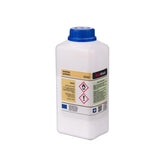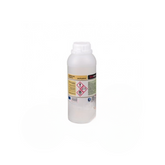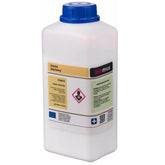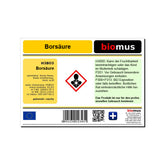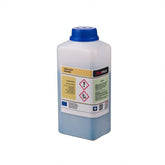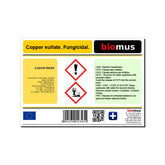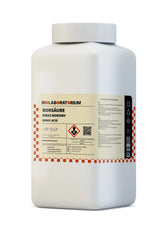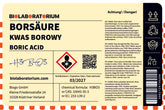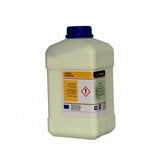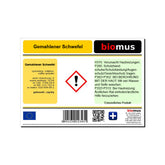Methanol, also known as methyl alcohol or carbinol, is an essential organic chemical compound in many industries. With its molecular formula CH3OH, methanol is the simplest alcohol and plays a crucial role in a variety of industrial applications. In this article, we will explore in detail the unique properties of methanol, its uses in different sectors, and the important safety considerations to take into account when handling it.
Properties of Methanol
Methanol is a colorless, volatile, and flammable liquid. It has a characteristic slightly ethereal odor. Its main physicochemical properties are as follows:
- Molecular formula: CH3OH
- Molar mass: 32.04 g/mol
- Boiling point: 64.7°C
- Melting point: -97.8°C
- Density: 0.791 g/cm³ at 20°C
- Solubility: Soluble in water and most organic solvents
Methanol is a polar compound due to the presence of a hydroxyl group (-OH) attached to a carbon atom. This polarity gives methanol unique solvent and reactivity properties, making it very useful in many industrial applications.
Industrial Applications of Methanol
Methanol is widely used in various industries due to its versatility and chemical properties. Here are some of its main applications:
Formaldehyde Production
Methanol is the main raw material for the production of formaldehyde, a chemical compound widely used in the manufacture of resins, adhesives, textiles, and construction products.
Fuels and Additives
Methanol can be used as an alternative fuel, particularly in internal combustion engine vehicles. It is also used as an additive in gasoline to improve performance and combustion.
Industrial Solvent
Due to its solubility in water and many organic solvents, methanol is widely used as a solvent in the chemical, pharmaceutical, and paint industries.
Organic Synthesis
Methanol is a key reagent in many organic synthesis reactions, particularly for the production of esters, ethers, and other chemical compounds.
Natural Gas Treatment
In the oil and gas industry, methanol is used to prevent the formation of natural gas hydrates during transport and storage.
Biodiesel Industry
Methanol plays an essential role in biodiesel production, as a reagent in the transesterification reaction of vegetable or animal oils.
Other Applications
Methanol also finds applications in the production of MTBE (a gasoline additive), disinfectant and cleaning product formulations, as well as in the glass and ceramics industry.
Safety Considerations
Although methanol is widely used in industry, it is important to consider its toxic and flammable properties during its handling. Here are some key points to consider:
Toxicity
Methanol is a toxic compound that can be hazardous to health if ingested, inhaled, or through skin exposure. Methanol poisoning can lead to serious effects such as blindness, damage to the central nervous system, and even death.
Flammability
Methanol is a highly flammable liquid with a low flash point. Precautions must be taken to avoid any risk of fire or explosion during its handling, storage, and transport.
Safety Measures
To handle methanol safely, it is essential to wear appropriate personal protective equipment, work in well-ventilated areas, and strictly follow established safety procedures. Adequate staff training and the implementation of emergency protocols are also crucial.
In conclusion, methanol is a versatile and essential chemical compound in many industries. However, its toxicity and flammability require careful management and strict adherence to safety measures to ensure the protection of workers and the environment. By understanding its properties and applications, companies can safely and responsibly leverage the benefits offered by methanol.


